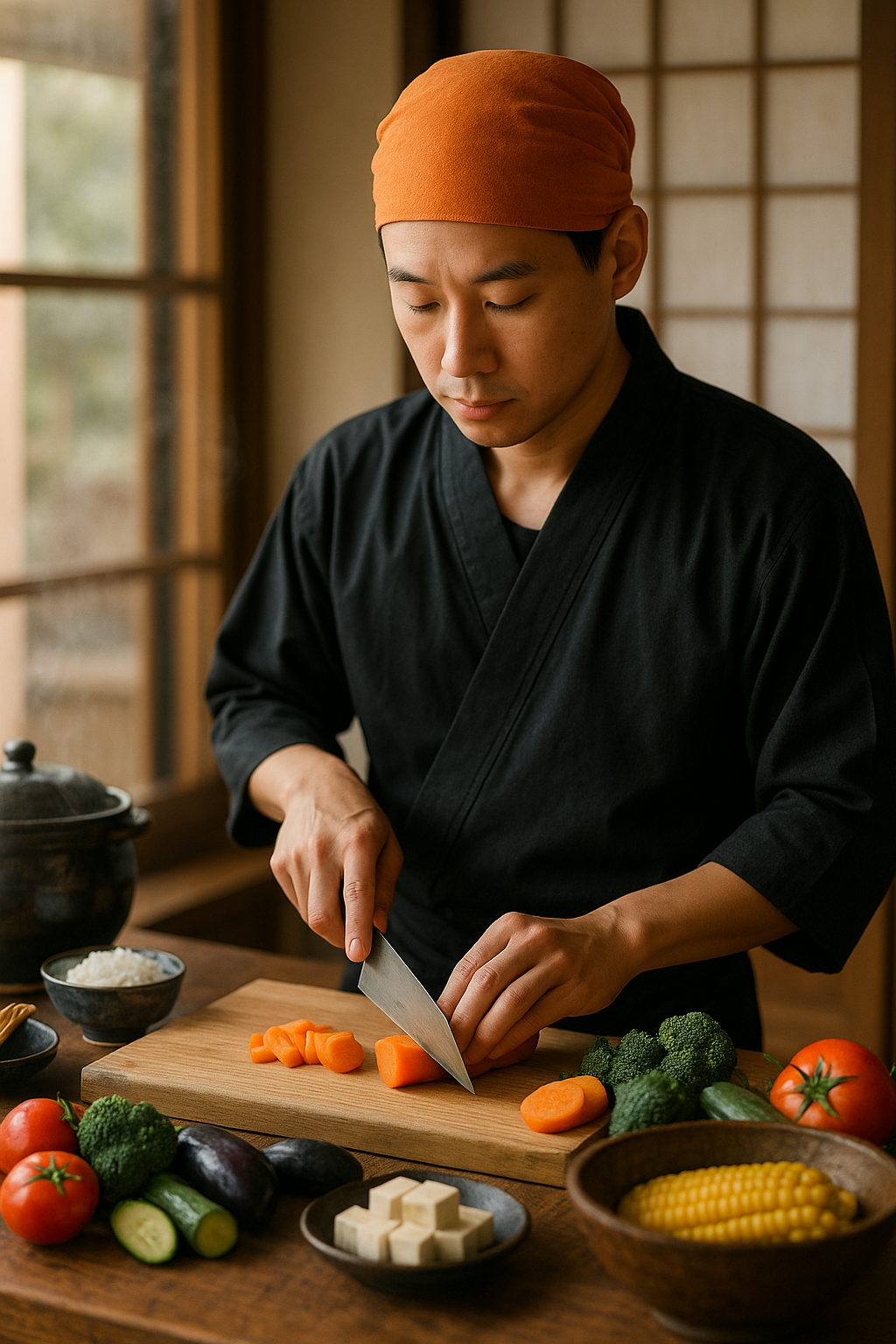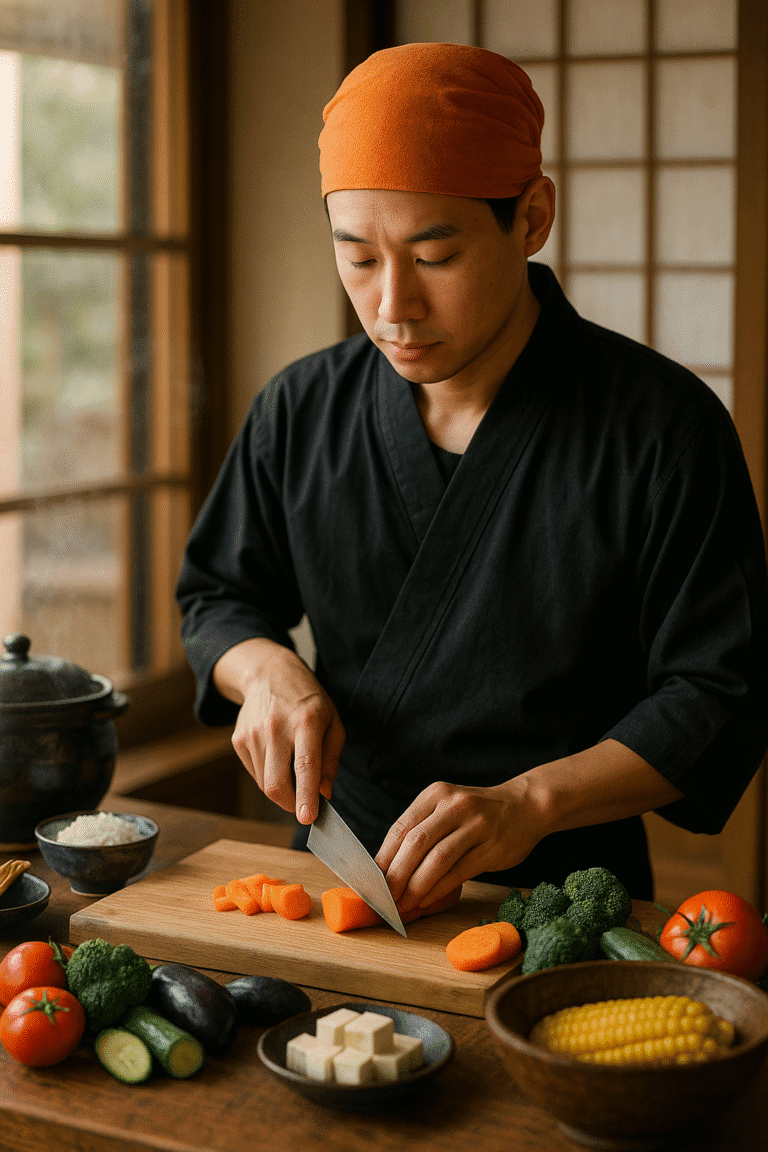The Ceremony of Japanese Cooking

A quiet market, a quiet ritual
Nishiki Market, in Kyoto, wakes early. The stalls open like flowers, and the air already smells of toasted sesame, dashi broth, freshly rinsed lotus root. We walk among gentle voices and vegetables that look carved by hand.
An old woman wraps shiso leaves with fingers as thin as rice paper. A child tastes a piece of tamagoyaki and smiles with his whole face. And you—perhaps without realizing—are already learning to look differently.
Eventually, at the end of the path, a small wooden gate slides open with a whisper. We enter barefoot. The tatami smells like time. In the kitchen, everything is in order: glazed ceramic bowls, knives with soul, a pot of rice covered with a white cloth.
The master appears. He doesn't speak—just bows his head slightly. Every movement—washing his hands, lighting the fire, slicing a carrot—happens as if there were nothing more urgent in the world.
Then, without interrupting his rhythm, he begins to speak.
“My grandmother used to cook with the windows open…
She said the rice had to hear the wind,
that if the steam stayed trapped, the memories couldn't come in.
When I was a child and cried for things I didn't understand,
she told me: 'watch the water boil—this is what sadness looks like…
but if you add something you love, it turns into soup.'”
More than cooking
No one asks anything. We simply listen, as he cuts tofu with the precision of someone who has once split a sorrow into two.
Meanwhile, the sun enters ceremoniously through the paper panels, and everything—absolutely everything: the knife, the bowl, the nori seaweed—seems to be in the exact right place.
We didn't come here just to learn how to cook.
We came to understand why, sometimes, silence heals more than words. Furthermore, we came to know that there are stories passed down in a spoonful of miso. And that, as his grandmother once said, Those who cook for others are also arranging their own hearts.
Some meals don't feed the body, but the soul

